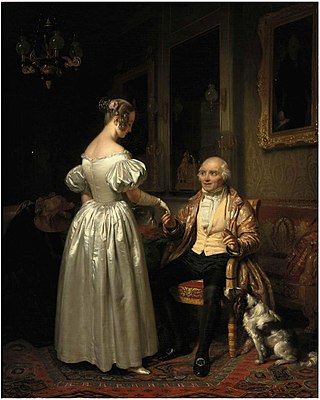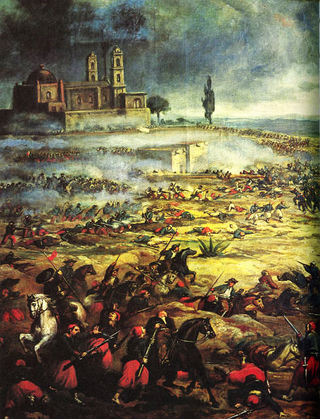
A holiday is a day or other period of time set aside for festivals or recreation. Public holidays are set by public authorities and vary by state or region. Religious holidays are set by religious organisations for their members and are often also observed as public holidays in religious majority countries. Some religious holidays, such as Christmas, have become secularised by part or all of those who observe them. In addition to secularisation, many holidays have become commercialised due to the growth of industry.

Labour Day is an annual holiday to celebrate the achievements of workers. Labour Day has its origins in the labour union movement, specifically the eight-hour day movement, which advocated eight hours for work, eight hours for recreation, and eight hours for rest.

Father's Day is a holiday honoring one's father, or relevant father figure, as well as fatherhood, paternal bonds, and the influence of fathers in society. In Catholic countries of Europe, it has been celebrated on 19 March as Saint Joseph's Day since the Middle Ages. In the United States, Father's Day was founded in the state of Washington, United States, by Sonora Smart Dodd in 1910.

Memorial Day is a federal holiday in the United States for honoring and mourning the U.S. military personnel who died while serving in the United States Armed Forces. From 1868 to 1970, it was observed on May 30. Since 1971, it is observed on the last Monday of May.

Juneteenth, officially Juneteenth National Independence Day, is a federal holiday in the United States. It is celebrated annually on June 19 to commemorate the ending of slavery. The holiday's name is a portmanteau of the words "June" and "nineteenth", as it commemorates June 19, 1865, when Major General Gordon Granger ordered the final enforcement of the Emancipation Proclamation in Texas at the end of the American Civil War. Originating in Galveston, Texas, Juneteenth has since been observed annually in various parts of the United States, often broadly celebrating African-American culture.
Autumnal Equinox Day is a public holiday in Japan that usually occurs on September 22 or 23, the date of Southward equinox in Japan Standard Time. Due to the necessity of recent astronomical measurements, the date of the holiday is not officially declared until February of the previous year. Autumnal Equinox Day became a public holiday in 1948. In 1947 and before, it was the date of Shūki kōreisai (秋季皇霊祭), an event relating to Shinto. Like other holidays, this holiday was repackaged as a non-religious holiday for the sake of separation of religion and state in Japan's postwar constitution.
Vernal Equinox Day is a public holiday in Japan that occurs on the date of the Northward equinox in Japan Standard Time, usually March 20 or 21. The date of the holiday is not officially declared until February of the previous year, due to the need for recent astronomical measurements.

Victory in Europe Day is the day celebrating the formal acceptance by the Allies of World War II of Germany's unconditional surrender of its armed forces on Tuesday, 8 May 1945; it marked the official end of World War II in Europe in the Eastern Front, with the last known shots fired on 11 May. Russia and some former Soviet countries celebrate on 9 May, as Germany's unconditional surrender entered into force at 23:01 on 8 May Central European Summer Time; this corresponded with 00:01 on 9 May in Moscow Time.

Festivus is a secular holiday celebrated on December 23 as an alternative to the perceived pressures and commercialism of the Christmas season. Originally created by author Daniel O'Keefe, Festivus entered popular culture after it was made the focus of the 1997 Seinfeld episode "The Strike", which O'Keefe's son, Dan O'Keefe, co-wrote.

Vidovdan is a Serbian national and religious holiday, a slava celebrated on 28 June, or 15 June according to the Julian calendar. The Serbian Church designates it as the memorial day to Saint Prince Lazar and the Serbian holy martyrs who fell during the Battle of Kosovo against the Ottoman Empire on 15 June 1389. It is an important part of Serb ethnic and Serbian national identity.

Havdalah is a Jewish religious ceremony that marks the symbolic end of Shabbat and ushers in the new week. The ritual involves lighting a special candle with several wicks, blessing a cup of wine, and smelling sweet spices. Shabbat ends on Saturday night after the appearance of three stars in the sky. Havdalah may be performed as late as sunset of the Tuesday following Shabbat.

Independence Day, known colloquially as the Fourth of July, is a federal holiday in the United States commemorating the Declaration of Independence, which was ratified by the Second Continental Congress on July 4, 1776, establishing the United States of America.
Public holidays in Panama include:

Wye River is a small town in Victoria, Australia. It is also the name given to the waterway which flows through the town and into the sea. Situated 155 km to the west of Melbourne, on the Otway Coast, part of the scenic Great Ocean Road, the Wye River township is located about 15 km west of the resort town Lorne, Victoria. It became more feasible for Melburnians to holiday there after the section of the Great Ocean Road from Lorne to Apollo Bay was opened in 1932. At the 2016 census, Wye River had a permanent population of 66, although its holiday population is ten times that.

The Grand Duke's Official Birthday, also known as Luxembourgish National Day, is celebrated as the annual national holiday of Luxembourg. It is celebrated on 23 June, although this has never been the actual birthday of any ruler of Luxembourg. When the monarch of Luxembourg is female, it is known as the Grand Duchess's Official Birthday.

Thanksgiving is a federal holiday in the United States celebrated on the fourth Thursday of November. It is sometimes called American Thanksgiving to distinguish it from the Canadian holiday of the same name and related celebrations in other regions. It originated as a day of thanksgiving and harvest festival, with the theme of the holiday revolving around giving thanks and the centerpiece of celebrations remaining a Thanksgiving dinner. The dinner traditionally consists of foods indigenous to the Americas: turkey, potatoes, squash, corn (maize), green beans, cranberries, and pumpkin pie. Other Thanksgiving customs include charitable organizations offering thanksgiving dinner for the poor, attending religious services, and watching television events such as Macy's Thanksgiving Day Parade and America's Thanksgiving Parade as well as NFL football games. Thanksgiving is regarded as the beginning of the holiday season, with the day following it, Black Friday, said to be the busiest shopping day of the year in the United States.

Thanksgiving is a national holiday celebrated on various dates in October and November in the United States, Canada, Saint Lucia, Liberia, and unofficially in countries like Brazil, Germany and the Philippines. It is also observed in the Dutch town of Leiden and the Australian territory of Norfolk Island. It began as a day of giving thanks for the blessings of the harvest and of the preceding year. Various similarly named harvest festival holidays occur throughout the world during autumn. Although Thanksgiving has historical roots in religious and cultural traditions, it has long been celebrated as a secular holiday as well.

Labor Day is a federal holiday in the United States celebrated on the first Monday of September to honor and recognize the American labor movement and the works and contributions of laborers to the development and achievements of the United States.

Cinco de Mayo is a yearly celebration held on May 5 to celebrate Mexico's victory over the Second French Empire at the Battle of Puebla in 1862, led by General Ignacio Zaragoza. Zaragoza died months after the battle from an illness, and a larger French force ultimately defeated the Mexican army at the Second Battle of Puebla and occupied Mexico City. However, following the end of the American Civil War in 1865, the United States began lending money and guns to the Mexican Liberals, pushing France and Mexican Conservatives to the edge of defeat. At the opening of the French chambers in January 1866, Napoleon III announced that he would withdraw French troops from Mexico. In reply to a French request for American neutrality, the American secretary of state William H. Seward replied that French withdrawal from Mexico should be unconditional.

International Workers' Day, also known as Labour Day in some countries and often referred to as May Day, is a celebration of labourers and the working classes that is promoted by the international labour movement and occurs every year on 1 May, or the first Monday in May.
















